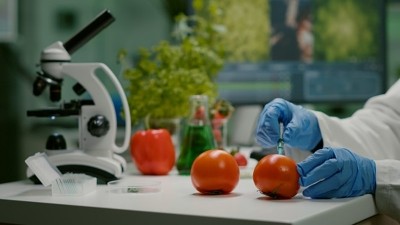High-tech inspections: South Korea deploys AI in national food imports plan to boost safety

South Korea’s Ministry of Food and Drug Safety (MFDS) new 2023 Imported Food Customs Clearance Inspection Plan features the use of AI that is expected to be made live in the second half of 2023.
“MFDS conducts food import inspections at customs based on the analysis on product import trends, test and inspection results, domestic and international hazard information and public interest so as to select key inspection targets and items requiring more stringent food safety management,” MFDS Minister Oh Yoo-gyeong said via a formal statement.
“This year we will be adding the use of an AI-based risk prediction system when it comes to selecting subjects for random sample inspection – this will be applied in the second half of the year and will help to concentrate inspections on products with higher risk of causing hazards.
“The AI will use machine learning and deep learning to analyse and select the high-risk items, and the use of this technology will help to promote more efficient customs clearance times [yet also] ensure the safety management of imported foods entering South Korea.”
At present the types of imported products targeted for inspection under this plan are from the food and beverage sector, livestock sector and fishery sector. Major risk factors to be considered include pesticide residues, veterinary drug residues, microbial contamination, adulterated items and more.
“Foods for more vulnerable consumer populations including infants, children and the elderly will see higher rates of random inspections,” Oh added.
“For example, milk formula will have double the number of tests conducted as compared to general food products.
“Common high-risk items known to often contain contaminants at levels that are above limits such as carrots and peppers, or red pepper powder, processed fruits or processed vegetables, will also see added inspections taking place.”
No exceptions, but shorter processing times with due diligence
The ministry highlighted that this new inspection system will apply to all food imports and importers, including those importers that have been registered as ‘excellent importers’ in South Korea – a system that allows for faster customs clearance made available to firms with no history of non-compliance and that fit all the required criteria including having imported foods into the country an average of five times a year in the past three years.
That said, there are still ways for food firms – especially those that traditionally require additional local FDA testing – looking to shorten their processing times, which is to request to have these done at private institutions.
“If the testing is requested to be done at a private testing institute, the processing time can be shortened by two to four days,” MFDS said.
“Moving forward, in order to further promote food firms’ voluntary food safety management, all businesses will be subdivided based on their non-compliance and administrative disposition history.
“There will be different management applied for each subdivided grade, including different requirements for random inspections of their products, which could in turn have impacts on processing times.”
At present, food firms importing into South Korea are divided into the categories of Excellent, General and Special Management (for vulnerable groups); but based on this new plan firms that fall under the General category are expected to be further subdivided into ‘Sincere’, ‘Normal’ and ‘Unfaithful’ subcategories.






















